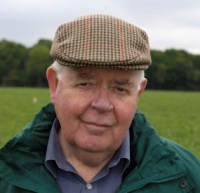David Richardson: Farming ministers should know about farming

I met a posh Conservative MP at the David Black Award lunch.
I won’t name him or his constituency for reasons that will become clear in a moment. In passing, may I say how pleased I was that Meryl Ward, who keeps more than 2000 sows in Lincolnshire, won the award. She has worked tirelessly for the pig sector for many years and the recognition was richly deserved.
But back to this MP who sat at the same table as me. During the lunch (at which Agriculture Minister Jim Paice was speaking) he declared to anyone who would listen that he was not in favour of agriculture ministers who were also farmers. “It’s not right,” he said. “Ministers should not be part of the industry over which they preside. They should be advised by civil servants and do what they say”.
I could not stop myself from telling him he was talking rubbish. If the civil servants knew anything about the industry, I told him, that would be a different matter and his idea might work, as it had in the past. But with virtually all the people in DEFRA with knowledge of agriculture had gone, it was vital ministers knew what they were doing. And I suggested our experiences of the previous government proved the point.
The Honourable Member became very huffy, sticking to his guns and refusing to be swayed, clearly unused to anyone questioning his authority. Neither would I – and the rest of the lunch was, to say the least, frosty.
I’ve listened to two more Conservative politicians since and, in both cases, the experience was more agreeable. The first was Lord Henley, who speaks on agriculture for DEFRA in the House of Lords. He spoke to members of the Farmers Club in London, deputising for Secretary of State Caroline Spelman (who used to run the NFU’s sugar beet office) and who should have been there but was delayed coming back from China.
A barrister by training, he also has a farm in Cumbria close to Hadrian’s Wall. Having inherited a speech intended to be delivered by someone else, he made a fair stab at explaining government policy. But during extended questions from club members he went on to prove he knew what he was talking about – although as a junior minister in the department he was clearly anxious not to depart from his limited brief.
The following day at the English Farming and Food Partnerships conference, agriculture minister Jim Paice was again a speaker. I’ve known him since he worked for the Suffolk buying group, Framlingham Farmers. He was a prominent young farmer before that and went on to be a farm manager. He mixes socially with farmers and at his home in Cambridgeshire he keeps cattle. In other words he’s steeped in our industry and is therefore, presumably, disapproved of by his parliamentary colleague who I was unfortunate enough to meet.
After several years as opposition spokesman on agriculture, Jim Paice has had time to make up his mind on key issues. His performance at EFFP was confident and surefooted and he is clearly relishing the opportunity to correct some of the faults that have bugged him for so long – despite the need to cut costs, that will make it more difficult.
I say again – and this is not a party political point – I’m glad we have people in power who understand our industry. They won’t get everything right, but you feel they mean to try. And that’s much better than what we’ve been used to.
